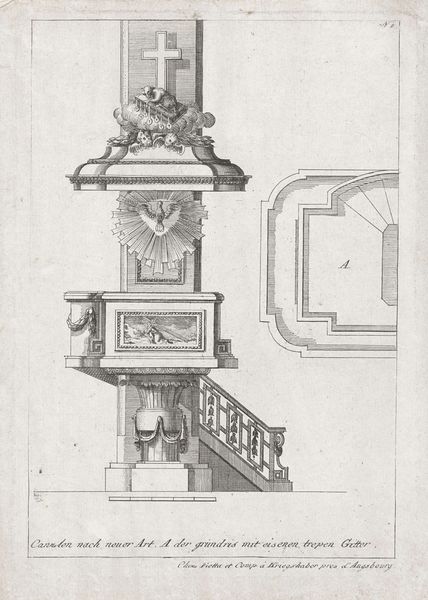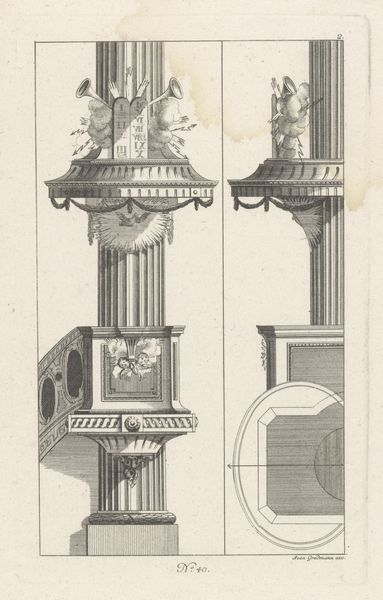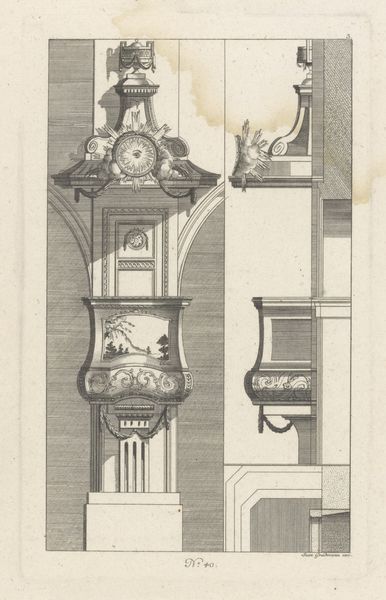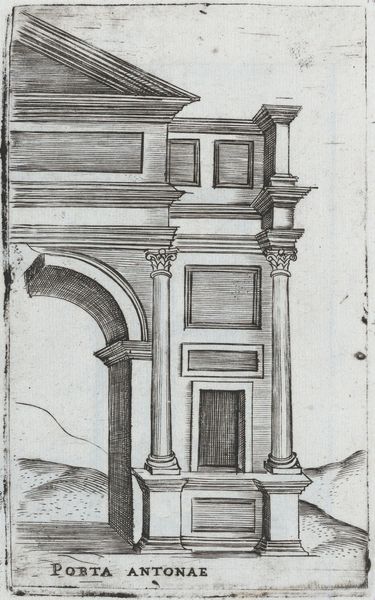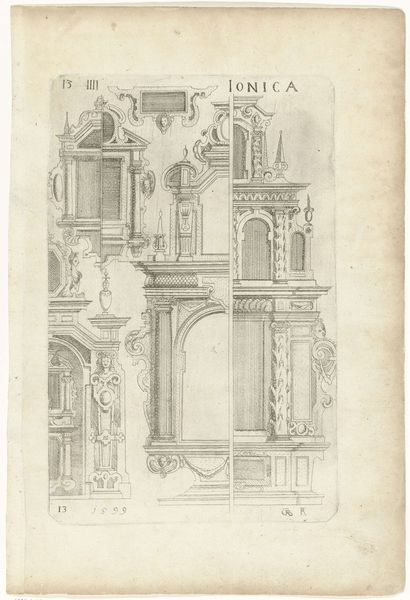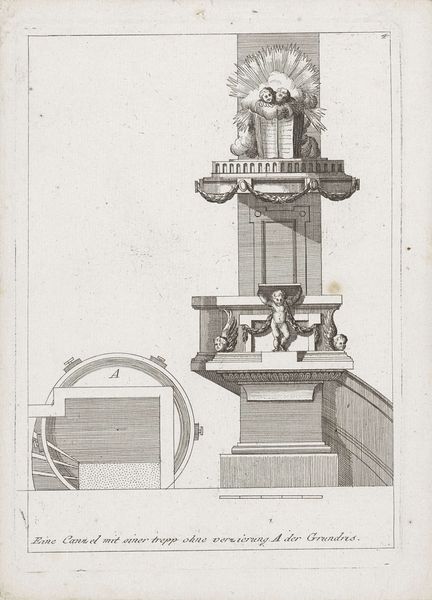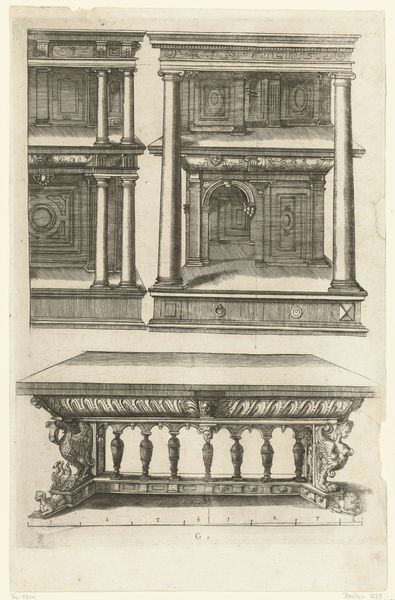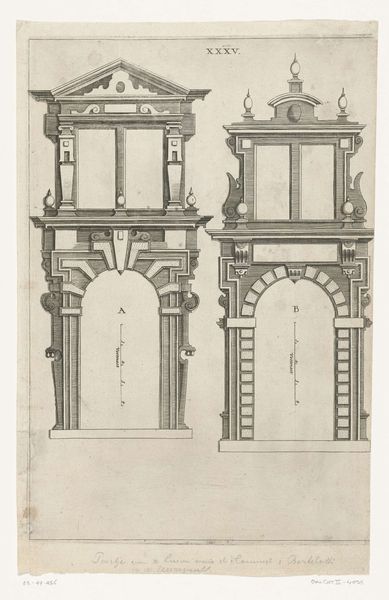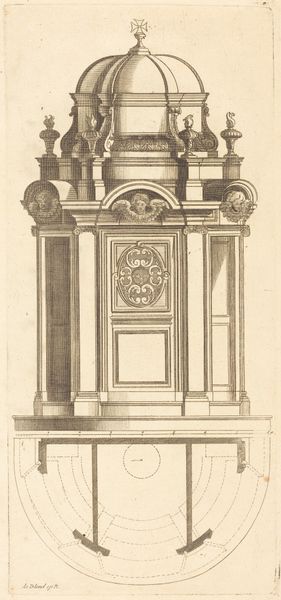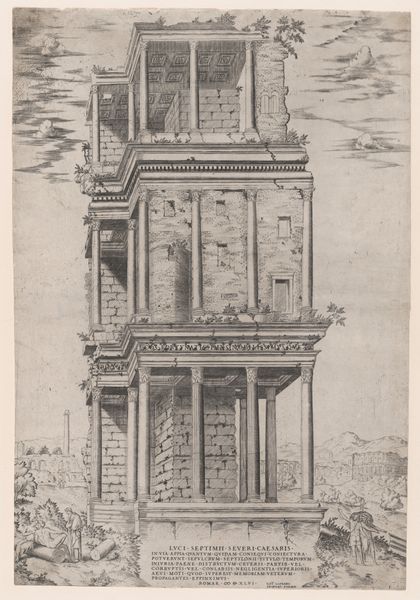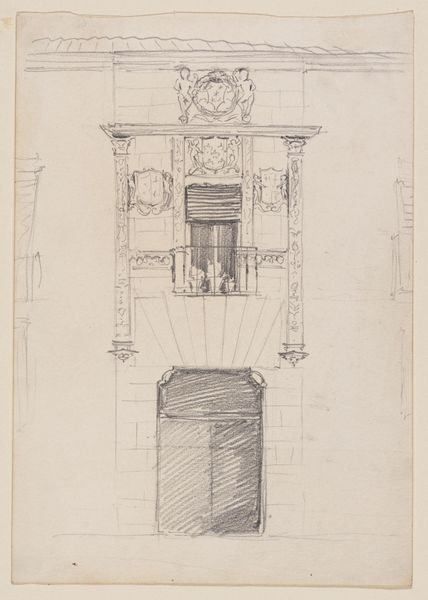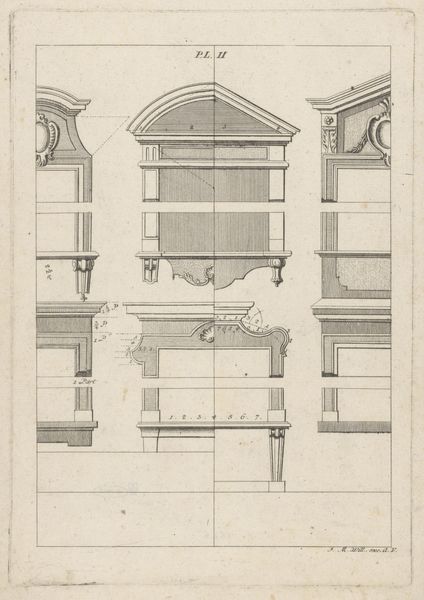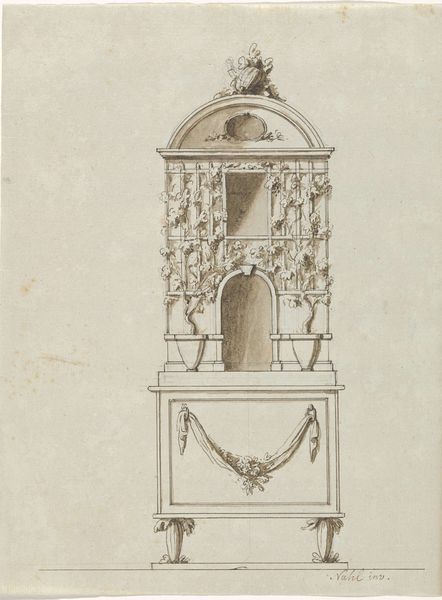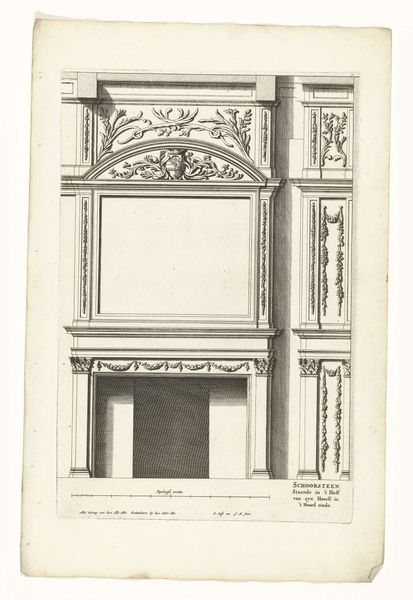
drawing, etching, ink, architecture
#
portrait
#
drawing
#
neoclacissism
#
etching
#
etching
#
ink
#
geometric
#
history-painting
#
architecture
Dimensions: height 272 mm, width 198 mm
Copyright: Rijks Museum: Open Domain
Curator: Take a look at this drawing from 1790 titled "Preekstoel met Christus met doornenkroon." It is held in the Rijksmuseum. It seems the piece is attributed to an anonymous artist. Editor: My goodness, what an austere rendering. Stark lines, lots of rigid geometry… it almost feels less like sacred architecture and more like an engineer’s blueprint. So different than what one normally pictures, I think. Curator: Absolutely. The drawing is in etching and ink on paper, and falls into the Neoclassical movement, doesn't it? This imagery really attempts to capture the feeling and message of Christian narratives while employing that classical taste. Think of the stark rationality after the Baroque theatrics. Editor: I see it in the geometric exactness, that detached quality… Look at that figure framed in the pulpit—is that intended to be Jesus? Curator: Yes, and take note of his crown of thorns—such symbolism can carry so much pain. But instead of grand emotion, we get quiet reserve. Notice also the strategic placement of ornamentation… wreaths, those urn-like finials. Editor: Those strike me as interesting details – especially in light of the stark style overall. It’s like they’re trying to inject a bit of ornate, almost funereal grandeur in between the geometrical austerity. A visual whisper of excess. Curator: The image, from my perspective, speaks volumes about faith navigating new cultural and philosophical grounds. There's a tension— a beautiful, thought-provoking tension— between devotion and reason. Editor: Definitely, and there's something surprisingly powerful about its reserved emotion. That very reserve makes you pause, and that pause lets the impact land with even more force. Curator: I think it's a perfect illustration of how the spirit of a period becomes etched into its visual expressions. Editor: Yes, sometimes it's what's unsaid or understated that leaves the biggest imprint. I wouldn’t mind seeing this drawing, unexpectedly, influencing modern architecture today.
Comments
No comments
Be the first to comment and join the conversation on the ultimate creative platform.
